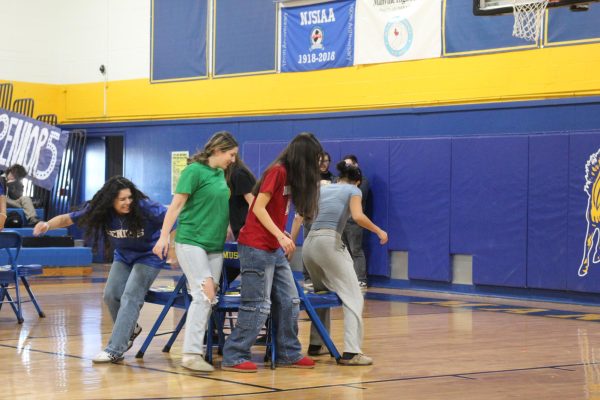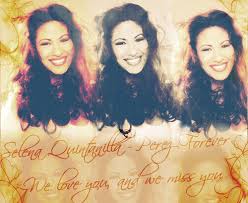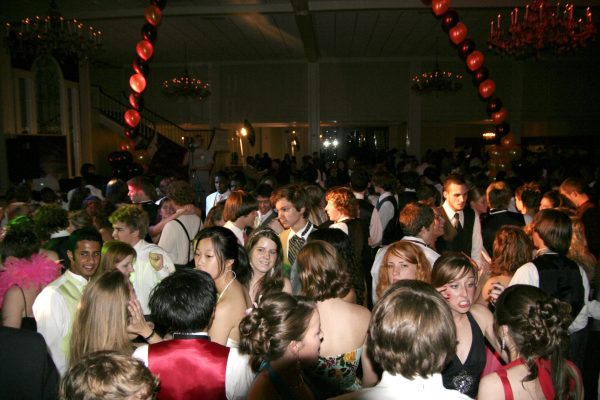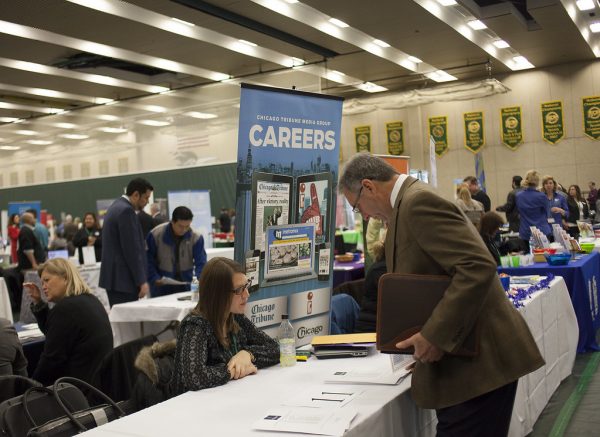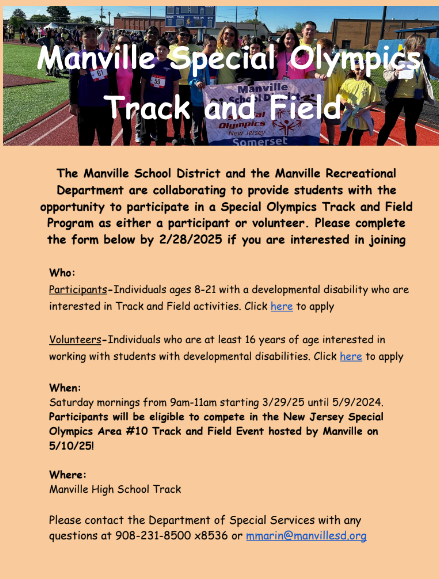Women’s History Month: Women making a difference at MHS
Women’s History Month is an annual declared month that highlights the contributions of women to events in history and contemporary society. In honor of March being Women’s history month, I sat down with 3 women who are making a difference in the lives of students, and who are changing the conversation regarding mental health at MHS. I had the great pleasure of talking to guidance counselors Ms. Kurtin and Mrs. Sulewski, and the new student assistance counselor Ms.Viso, about our school’s mental health initiatives, along with their views on women’s rights and other areas of their lives that students may not be aware of.
This year it seems that the conversation of mental health has become more open here at MHS, in what ways have you seen this change? What are your hopes for the future of the discussion at our school?
Kurtin: I think implementing a student assistance counselor was huge in shifting the dynamics of the high school, because society and specifically your generation needs a little more mental health help than we’ve seen in the past. Whether it’s from technology, or just the pressures of being a student in middle school or high school, even younger grades too. I think the high school did see a shift in that, and Mrs. Sulewski and I are really here for academic counseling, and there was just so much regarding mental health that needed to be addressed which the administration saw. I think it’s great that they did put Ms.Viso in place, because she has the ability to run groups, as well as the formation of the GSA, which is something I haven’t been able to get into place with past administration. Kids need a voice to talk freely about these issues, it’s everyday life and there’s such a stigma around it. My hopes are that we can talk more freely about suicide and therapy and having a mental health disorder, because it’s not just for students, it’s everyday life. At this point, people are opening up to discuss it more than they did in the past, but the more open we are about it the less stigma there will be.
Sulewski: It’s changed immensely. Ms Kurtin and I do a lot of counseling on top of academic counseling, and sometimes it can be challenging to be with a student and give them the extra help they may need. Therefore, when we got a student assistance counselor this year it was really helpful because she’s there for every student emotionally, physically, academically, and personally. It’s really helpful for students to know that there’s always someone there, and it’s important that students are aware that there’s someone else available if Ms.Kurtin or myself aren’t here. I hope to see that students know they can come to us for anything, like I always say, my door is always open.
Viso: What I’ve noticed with the topic of mental health is that it’s very stigmatized, not just here but everywhere. So, one of the initiatives we’ve had is to really open the door to talking about mental health and not being afraid to talk about it. We want students to know that there is help out there, that there are resources within the school, and that you don’t have to be afraid or feel like you’re alone. In the future we’re looking to bring in agencies to come in to talk to the students so they can see what’s out there. We’re also looking to have more guest speakers to talk about different disorders whether its anxiety or substance use, and doing presentations about their stories and how they’ve recovered.
What is a typical day like for you?
Kurtin: It’s insane, there really is no typical day. Personally, I’m the school test coordinator when it comes to state testing which was once called PARCC, and is now NJSLA. So I’m in charge of putting the schedule together for every student tests, and making sure that every kid, general ed, special ed, ESL, is getting tested. The whole scheduling process stars in October, the state needs my groupings of students with test administrators by November, so it’s very tedious and a ton of work. There’s constant combing of what I’ve already put in place and done. On top of that, I’m also in the middle of scheduling students for next year, so I’m spread very thin in February, March, and April. That’s another reason I think it’s so great that we have Ms.Viso, because if I have a student in crisis I have someone else that can help them so I can still get my regular responsibilities done. There’s never really a typical day though, you walk in the doors and you have no idea what’s going to happen. I can have my schedule planned out as best as I want it to be and the whole thing goes up in flames.
Sulewski: It really all depends on what a typical day is. I don’t really come in with set expectations as “I’m going to get this done, and or something else done.” Just because things may arise, there may be a crisis situation where that could, honestly, take all day. Typically I come into my office, right now we’re in the scheduling process, as well as scholarships. That means reaching out to contributors to provide scholarships for MHS students, and making newsletters and/or hunting down students to urge them to apply. Also answering emails, checking grades, and checking in with students just to say hi. I think that’s really important, not to just be in the office, but to make people see you and know you’re there.
Viso: Usually I try to pull students every period, sometimes people come to me and sometimes I call them down, teachers may send them to me if they notice someone’s having a bad day. It’s usually a lot of one on one interactions with students, a lot of check-ins and talking about issues they might be struggling with. Whether it’s relationships, feeling depressed, stress management, family issues, anything they want to talk about, we talk about.
What did you want to be when you grew up? Why? What options seemed open or closed to you?
Kurtin: I wanted to be a veterinarian and I also wanted to be an attorney, and then I wanted to be a forensics psychologist. I was a very good student, and I never really felt like there were any doors closed that were close to me because I had a really supportive mother. I didn’t grow up in a household with two parents all the time, and while my father was supportive as well, my mother was the person that shaped me and helped nurture me and made my environment what it was. I never really thought I couldn’t do anything. I was the second class with the NJ Stars program, so I received the NJ Stars scholarship and I went to my county college for free. Then they implemented NJ Stars II, so I took advantage of that and went to Ramapo where I got my Bachelors degree in Psychology. It was probably the best decision of my life, because I don’t have debt, and there are so many people who walk out of college with hundreds of thousands of dollars in debt that they’ll never be able to pay off. I hadn’t thought about what I was going to do after getting my psych degree, so I wound up going to William Patterson and finding out that school counselors really are a dime a dozen. But all throughout my childhood I had been a peer mediator and even in my friend groups I had always been the listener and the observer and I wanted to help others, whether it’s through listening or being someone others can rely on. It’s kind of the role that I’m in in this world. It just been a natural progression for me I suppose.
Sulewski: I’ve never really seen anything as closed off to me, I’ve personally always thought that the sky’s the limit. I wanted to be an elementary school teacher, I love children, as you know. That was my goal, I always wanted to teach, but then my father got sick with cancer. I was very fortunate that my parents paid for my education. After my dad passed away, I suffered a traumatic loss at 19 years old, so I decided that I wanted to go into helping other people, and that’s why I went into counseling. And now here I am.
Viso: Originally I wanted to be a doctor, until I realized math and science weren’t my thing. As I was studying in college, I thought I wanted to be a lawyer. But the more psych classes I took, and the more involved I got with internships, I realized my passion was toward psychology and understanding how to help people with mental health, and really advocate for them.
What is your school counseling/educational philosophy?
Kurtin: I am person centered. There’s cognitive behavioral therapy and all this different stuff, but I really feel like each student is an individual, and you can’t take a cookie cutter way of dealing a kid and apply it to every single student. I think it’s important to speak to each student and figure out who they are, because something that might work for one kid doesn’t necessarily work for everyone else. Obviously I have things that I do with kids that are similar, like coloring because it’s cool to bring your mind back to the present. So that’s something I do with a bunch of students, if they don’t want to they don’t want to, but that’s just an example of what I utilize. I really think person centered approaches are important , because they utilize who the individual is, not just a whole cookie cutter, “this is going to work for every single kid,” because that’s not the case.
Sulewski: My door is always opened, I’m just here for anyone. I try to be friendly and bubbly to everyone, even they’re not “my kid.”
Viso: Everyone has a story to tell, it’s my motto.
How do you see the word “leader” fitting in to your role as a school counselor?
Kurtin: Well number one, I’m an adult in this school, so it’s my job to be a role model for students and even other staff members. I’m such a “pseudo administrator,” because we’re expected to do a lot of administrative things, which is the role of a counselor in a lot of schools. It’s not necessarily what the counselor is put in schools to do, but we lead the staff in a lot of different things and we lead the students in bettering themselves and getting to the next level. So while I’m not a leader in the sense of being an administrator, my role is kind of odd in the school because staff will come to us and talk to us about how to deal with a student or students will come to us and ask us about how to deal with a teacher , so we’re kind of the middle man. We’re the liaison between the administration and the parents and the community. We may not be a forefront leadership role, but we do play a leadership role at some points.
Sulewski: We wear many hats in the school. We go to special ed meetings, we’re 504 coordinators, we’re test coordinators, everything we do plays a role as a leader. We’re also big advocates for students by making sure they’re heard by us and by administration, and advocating for new classes or specific programs.
Viso: I would say I pretty much take the lead on opening the conversation for mental health. If people want to talk about about suicide prevention or education on different mental health disorders or addictions, I’m kind of the chairperson that head starts everything. So I have to talk about everything, find programs, figure out the best way to talk to everybody, and try go into the classrooms more to say “This is who I am, this is what I do, and this is how I aim to help you.”
What do you think makes a successful leader? And in particular female leaders?
Kurtin: A successful leader needs to be a role model, but they also have to be someone that can adapt to different situations and rangle up the moral of the people around you. As a woman, it’s difficult to get to a point of true leadership in this world, even though we have equal rights it’s still very difficult for women to break through and gain the respect to be placed in the roles they deserve. Being successful doesn’t come easy, and it doesn’t come without hard work and determination. You can’t just sit back and expect things to happen, you need to be ambitious and have some sort of internal drive because things don’t just fall into people’s laps.
Sulewski: Being visible, having a connection with each person, making it known that you’re always there for somebody, and most of all not backing down.
Viso: I think being able to work with different types of people, everyone has different ideas and philosophies, and being able to find ways to make everyone’s ideas work towards the same concept. Being a team player, being mindful of the disadvantages of being a woman compared to males in power. We know that males are usually seen as stronger than females, yet there are many powerful women out there that don’t get put into the light a lot.
What do you think is the most significant barrier to female leadership?
Kurtin: Men are still holding positions of power, and you can see it in school districts and corporate america. How often do you really see a strong female. I think women are starting to break through, but we need to break through more in order for that dynamic and that shift to take place. Once women infiltrate more, it will be easier for that paradigm shift to happen. I do think it’s happening now, but it’s slow.
Sulewski: People believing in women, a lot of people think we’re emotional and not strong leaders, while there are many women who are strong and powerful and don’t back down from situations.
Viso: I would say the fact that there are not many females in higher power positions. In my experience, I’ve seen that women tend to be afraid to take on leadership roles. Mainly due to the competitiveness of being around other males, and not being taken seriously because they are women.
What woman inspires you and why?
Kurtin: My mother has always inspired me because she is a single parent, and she has had to persevere through a lot of different situations in her life. To have raised two females, that are independent and career driven and successful, speaks a lot to her as a mother and an individual in general.
Sulewski: Not necessarily a particular person, but women who can do the everyday task on top of raising a family and working full time. Women who are able to multitask, I admire women who have it all together and can do things and not be afraid of reaching for the stars.
Viso: My abuela. My abuela is the type of person who would give you the shirt off of her back, even if it means she won’t have one. She’s taught me how to appreciate the little things in life, how to talk to and listen to everyone, and that just because you see someone a certain way it doesn’t me they are that way. She’s shown me how to be a really personable person. Plus, she makes amazing food.
How do you motivate yourself and stay motivated?
Kurtin: I’m kind of a “fake it ‘till you make it” kind of person. I think your mindset drives your life, and if you’re constantly a negative individual, you’re constantly going to view the world as being negative. So if you’re in a funk I think it’s important to pep talk yourself a little bit. Whether it’s going to the gym or getting up in the morning to go to work, I think if you wallow in your sorrow it makes it harder to get out of that funk. Going to people that can help me when I’m in a time of need, surrounding myself with people that care about me, or even taking some alone time to recharge, recognizing what I need in the moment and recognizing what my self care needs are in the moment for me is very important.
Sulewski: I love what I do and sometimes I feel like I don’t have to motivate myself because it’s something I wanted to go into, but I also have to motivate myself for my family. I want to take care of my kids and to be a good role model for them, so they can look up to me.
Viso: I kind of wake up and tell myself “Today’s gonna be a great day.” I motivate myself by reminding myself that the reason I got into this field is to listen to other people’s stories and help them on their journey. I use that as motivation to help me come in everyday and do my job the best that I can, so I can be here for you guys, the students.
What’s the most important career or other discovery you’ve made in the past year?
Kurtin: I think it goes back to self care. I overall can be a high stress person and I take on a lot of stress, but I’ve been actively working on trying to not be that way and trying to realize I can’t control some situations. If it’s a situation I can’t control, I need to let them go because taking them on causes way more stress than necessary. I wouldn’t say I’m an unhappy person by any means, but stress can get the best of me. So this is something I’ve been working on in the past year, and I’ve discovered that working out consistently really helps me de-stress and keep my head level. Especially working in an educational setting, I have to be even-keeled but I do put a lot of pressure on myself. The older I’ve gotten, I’ve realized how important it is to take care of yourself and set boundaries.
Sulewski: I’m not afraid of a challenge, but it’s also always ok to ask for help. To never be afraid afraid of a situation, and to believe in yourself, even though at times that can be hard as a female.
Viso: Learning that my own personal journey gave me some barriers, but also helped me overcome other barriers. It really helped shape me within learning how to become an effective counselor and also an effective listener. Unless you’ve gone through your own struggles, you can’t always help somebody else.
What’s an accomplishment that you are proudest of?
Kurtin: Becoming a school counselor, taking what I’ve done all my life and using it for good. Even if I make a difference in just one student’s life I feel like I’m doing my job. I know I’m not going to be everyone’s best friend and not everyone is going to like me, and that doesn’t bother me, but if I can help at least one kid a year I’m doing what I need to do. Obviously I help more than one, student because I try to help all of them, but my hope always is to leave a positive impact on my student’s lives and it’s a big accomplishment. I don’t think everyone can do this job, I think it comes naturally or it doesn’t, I pride myself on being genuine.
Sulewski: I’m very proud of the fact that I finished college in 4 years, even though my father passed away. And that I didn’t stop, that I was able to further my education and get my masters degree.
Viso: I was the president of the counseling honor society at kean. We did a lot of community events, volunteer work, and outreach into the counseling field. It was really fun.
What do you believe will be the biggest challenge for women in the generation behind you?
Kurtin: I think that while there is so much self love and positivity being spread around on social media, the hardest thing your generation is going to have to overcome is truly accepting themselves for who they are and having true self love. Social media has changed the ideas of what women look like, and the pressures of having to look a certain way is enormous. While on the flip side you have people on social media who are promoting self love, there is so much out there promoting what females should look like, that I think is going to be really difficult for girls to overcome. I always say, if you don’t love yourself or aren’t happy with yourself, how are you going to love someone else or love what you do, because you internally need to be able to radiate that.
Sulewski: I personally think that a lot of kids have no filters. Which in a way can be a good thing, but sometimes it gets people into trouble in general because sometimes you do need to hold back on saying what your thoughts are. I find that a lot of students think that they won’t have consequences and they can just do their own thing, but that’s not the case if they’re saying how they feel in a way that isn’t productive.
Viso: One of the biggest challenges would be letting your self esteem get in the way. Many girls that I talk to have a lot of self doubt and negativity about themselves and think they can’t excel. In reality, they’re very powerful and they definitely have the drive and motivation to do well, they just have to overcome that barrier.
Where do you see yourself in the next five years?
Kurtin: I’d really like to run a department of counselors. I feel like that’s my end goal, whether it happens in the next five years or the next ten years, I feel like I’ve had a lot of experience in the past couple of years in this setting, because Mrs. Sulewski and I have been on our own a lot. Mr. Hemberger has stepped up and helped us strengthen our department, but prior to him we didn’t really have a particular person to go to. I won’t like not having that interaction with kids being in an administrative position, but I’ve always wanted to affect change, and I don’t think I can affect that change as a counselor.
Sulewski: I think, living the same type of life, same career. I’m really happy where I am. Maybe I’ll have a bigger house, but career-wise I’ll be exactly where I am. I’m okay with just being a counselor.
Viso: Hopefully still here, and opening up a private practice on the side.
Having the opportunity to sit down with these three ladies really opened my eyes, not only to what they do for our school community, but to how different they all are. They each have a different approach to things. They each greeted me with smiles and a complete openness to whatever questions I had for them. There is so much that students don’t get to see in regards to what the guidance counselors do for the student body. Despite their different goals or philosophies when it comes to their jobs, they all want the same things, to connect with their students and make them feel heard. It’s clear to see that Ms. Kurtin, Mrs. Sulewski, and Ms. Viso are making a difference here at MHS one step at a time.


